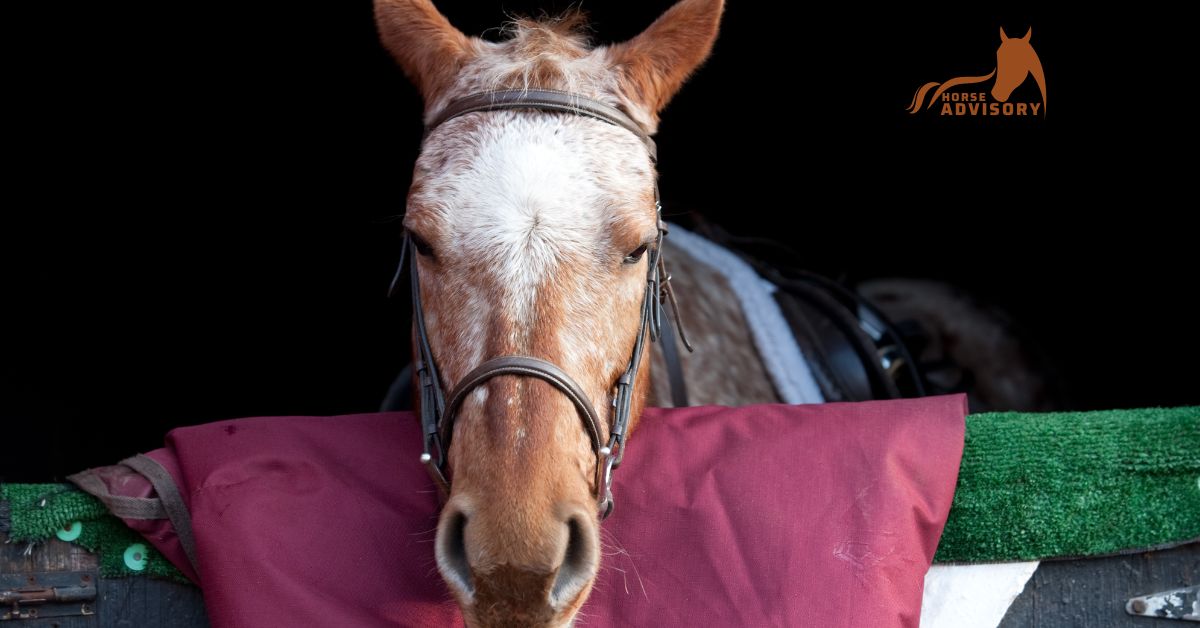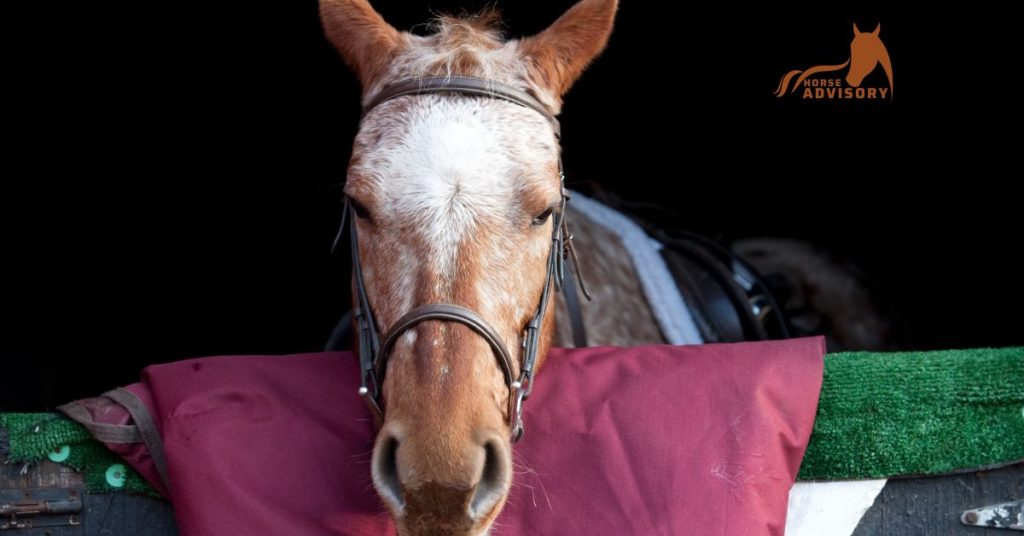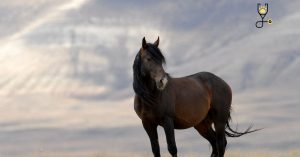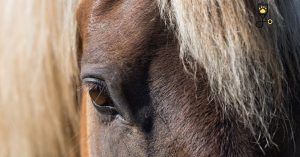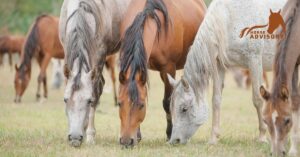How do horses sleep? Do they all sleep the same way? What exactly happens when a horse falls asleep? These are some of the questions that horse owners and lovers often have about horses and their sleeping habits. In this blog post, we will explore how horses sleep, what stages of sleep they go through, and some of the common myths about horses and sleep. So, if you’re curious about how your favorite four-legged friend sleeps, keep reading!
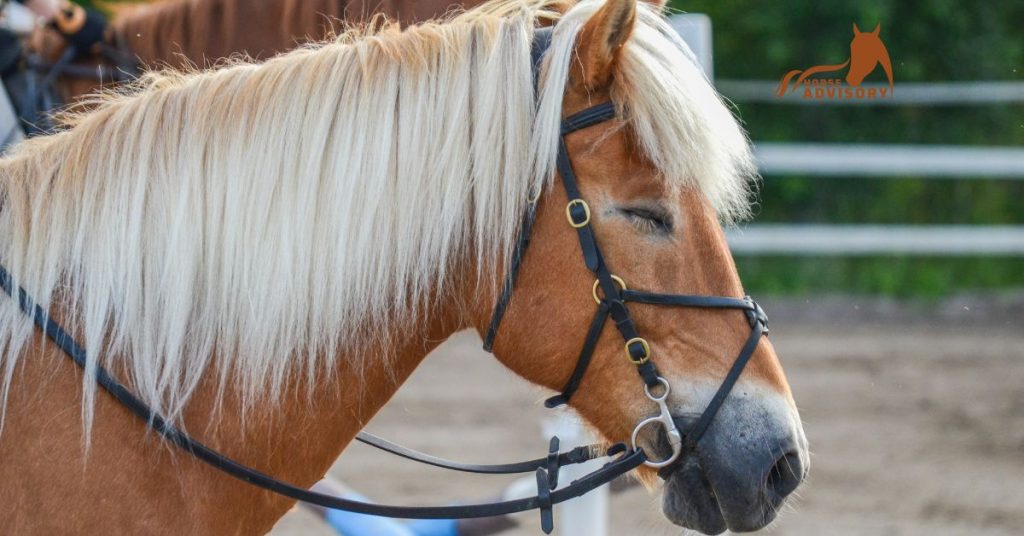
Sleeping positions of horses with headings
1. Sleeping in the standing position
Most horses sleep in the standing position and will not lie down when they are sleeping. This is because horses are constantly on guard for potential predators and feel more secure when they can keep an eye out for danger. Horses typically sleep in the standing position with their neck bent down and their legs tucked beneath them.
2. The laying down position
Though it is not as common, horses will sometimes sleep lying down on the ground. When this does happen, the horse usually curls up into a fetal-like position with its legs tucked in close to its body. Horses that have been trained to lie down can also lie down in a similar manner while they are sleeping.
Stages of sleep
1. REM sleep
Rem (Rapid Eye Movement) sleep is the deepest and most restful stage of sleep for horses. During this phase, their eyes rapidly move beneath their eyelids, and they may bite at the air or twitch their facial muscles as if dreaming. Horses typically spend about 20-25% of their sleeping time in REM sleep.
2. Non-REM sleep
Non-REM sleep is the second stage of sleep, which is lighter and less restful than REM sleep. Horses generally spend about 75-80% of their sleeping time in this stage. During Non-REM sleep, horses will be less alert and may move around or fidget occasionally as they enter lighter stages of sleep.
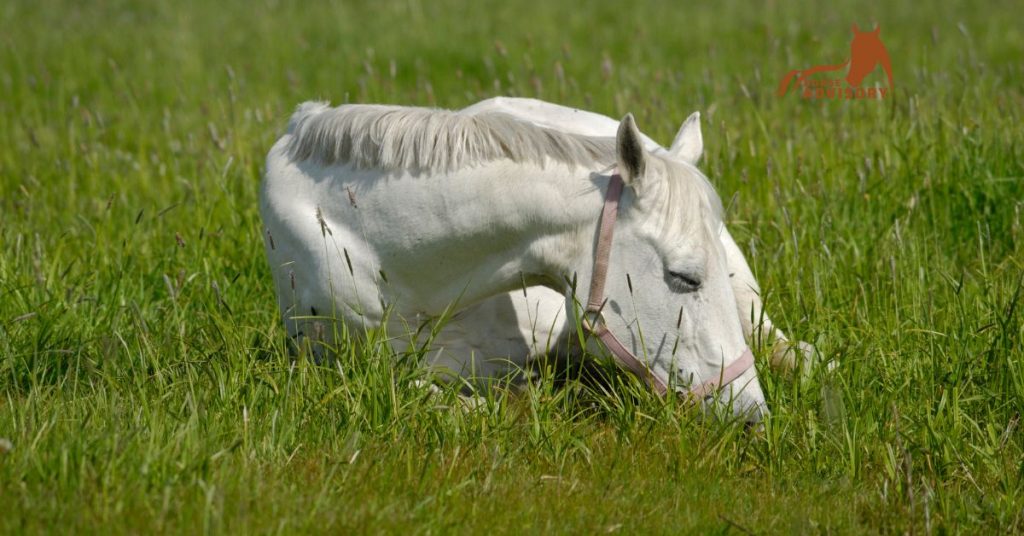
Common Myths About Horse Sleep
1. Horses sleep standing up – This is a common myth about horses, but the truth is that horses can and do sleep lying down. In fact, horses need to lie down in order to reach their deepest stages of sleep. However, horses can also nap while standing up, which happens when they are in light REM (rapid eye movement) sleep.
2. Horses don’t need as much sleep as humans – While it’s true that horses don’t require as much total daily sleep as humans do, they still need around 12 hours of combined rest and relaxation every day in order to stay healthy and perform well. Without enough rest, your horse will become tired and cranky, so it’s important to make sure they get plenty of quality sleep.
3. Horses are nocturnal – This is another myth about horses that isn’t true. While horses do tend to be more active at night, they still need to get their rest during the day in order to stay healthy and strong.
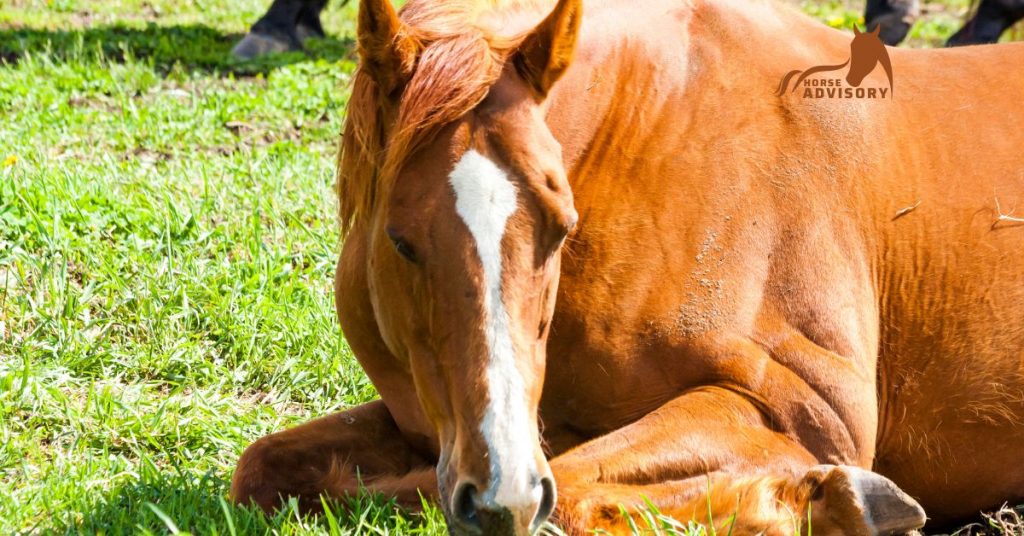
Safety and Comfort
If you own a horse, it’s important to provide them with a safe and comfortable place to sleep in order to ensure that they get enough restful sleep each night. Your horse should have access to clean bedding (preferably straw), a warm shelter from the elements, and plenty of space in which they can move around freely without feeling cramped or restricted. Additionally, make sure there are no predators or dangerous animals nearby that could frighten or harm your horse while they are sleeping.
Conclusion
Overall, it’s important for horse owners and lovers to understand how horses sleep in order to provide their four-legged friends with the best possible care. Horses go through different stages of sleep, just like humans do, and they need 12 hours of combined rest and relaxation every day in order to stay healthy and perform well. Additionally, it is essential that horses be provided with a safe and comfortable place to sleep in order to ensure that they get enough restful sleep each night. With this knowledge, you can help make sure that your horse gets the quality shut-eye they need!
Frequently Asked Questions
1. How often do horses sleep?
Horses typically need 12 hours of combined rest and relaxation every day in order to stay healthy and perform well. During this time, they may nap while standing up or lie down to enter deeper stages of sleep.
2. Do horses dream?
Yes, just like humans, horses experience REM (rapid eye movement) sleep during which they may bite at the air or twitch their facial muscles as if dreaming.
3. Are horses nocturnal?
No, horses are not nocturnal animals and need to get their rest during the day in order to stay healthy and strong. Therefore, it is important that they have a safe and comfortable place to sleep in order to ensure that they get enough restful sleep each night.
4. What type of bedding is best for horses?
Straw is typically the best type of bedding for horses as it helps keep them warm and provides support while they lie down. Additionally, make sure there are no predators or dangerous animals nearby that could frighten or harm your horse while they are sleeping.
5. How can I tell if my horse is getting enough sleep?
If your horse is alert, responsive, and performing well, then it’s likely they are getting enough quality sleep. However, if you notice that your horse is more tired than usual or exhibiting signs of stress or anxiety, then it may be a sign that they need more restful sleep. In this case, it’s important to evaluate their sleeping environment to ensure that they have access to comfortable bedding and safe shelter from the elements. Additionally, make sure there are no predators or dangerous animals nearby that could frighten or harm your horse while they are sleeping. If you continue to have concerns about your horse’s sleep habits, consult with their veterinarian for further advice.
